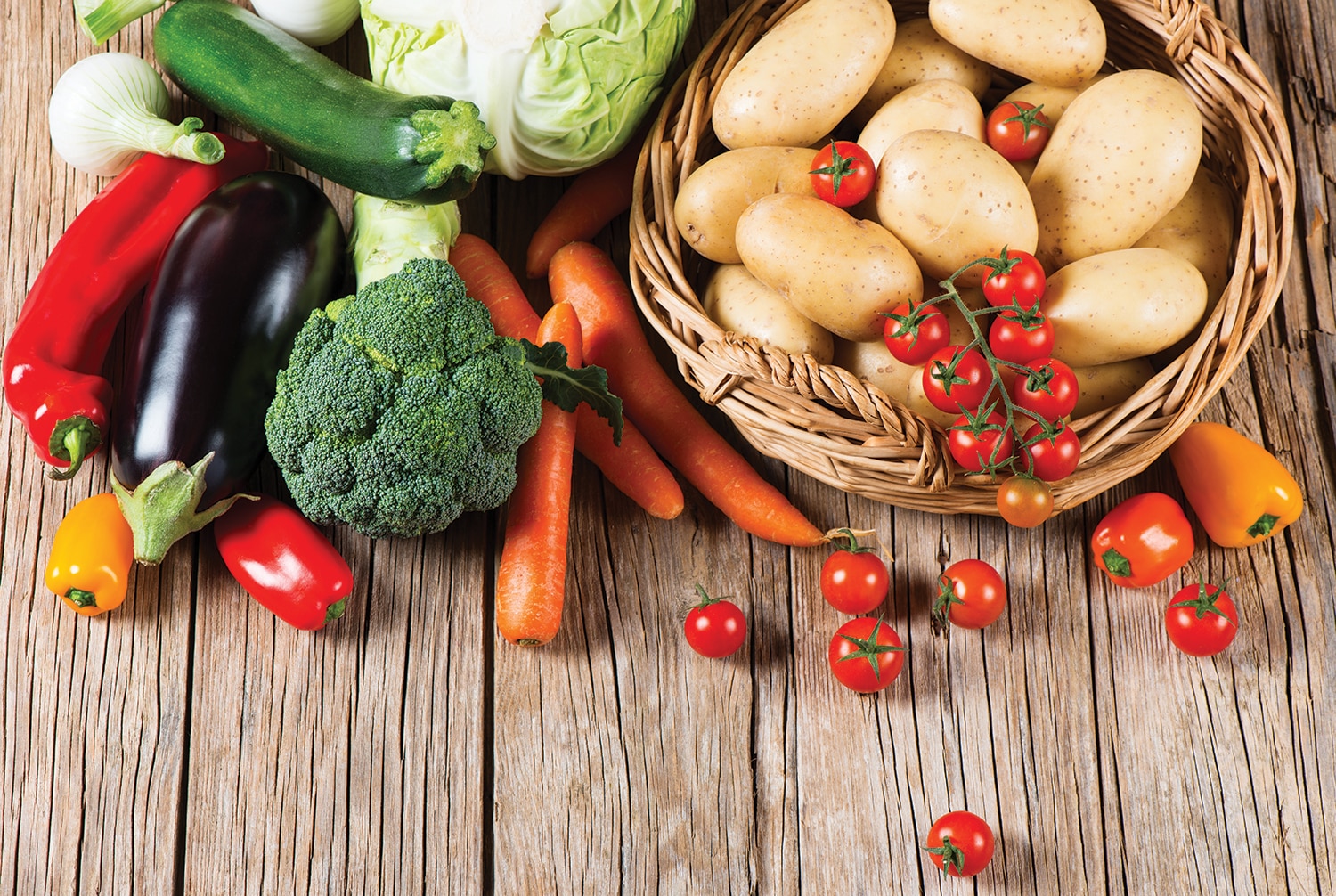When you hear the phrase “comfort food,” tomatoes and broccoli might not immediately spring to mind, but your perception could change as ongoing research evaluates whether increased intake of plant-based foods could slow the growth of prostate cancer.
In the Men’s Eating and Living (MEAL) Study, researchers are assessing how a diet that incorporates more vegetables affects prostate-specific antigen (PSA) levels and the Gleason score of men with early-stage prostate cancer. The randomized study, conducted at 180 locations across the U.S., tracks 464 men ages 50 to 80 with prostate cancer that has not progressed beyond stage T2a and who opted for active surveillance over treatment.
“We’re trying to prove that if men on active surveillance switch their diet to one that’s beneficial, they can decrease the growing and spreading of their prostate cancer,” reducing the number who will eventually need treatment and improving their quality of life, says J. Kellogg Parsons, associate professor of surgery at Moores Cancer Center at UC San Diego Health and protocol chairman of the study.
Over 24 months, half of the participants receive telephone-based coaching from a counselor, along with written support materials and newsletters. Counselors aim to help participants develop confidence in their ability to change their behavior, establish goals, and make and maintain diet improvements by providing positive reinforcement and watching for signs of regression. The counseling focuses on increasing vegetable consumption to at least seven servings a day. The control group receives only nutrition guidelines from the Prostate Cancer Foundation and newsletters containing general dietary information.
Researchers measure the PSA levels of participants in both groups at regular intervals, perform biopsies after 24 months, and assess quality of life intermittently through questionnaires. They plan to complete the study by the summer of 2017. A pilot trial conducted in 2007 showed that over-the-phone counseling was effective in helping survivors improve their diets.
“The intervention simultaneously empowered them,” says Parsons. “It let them feel like they were doing something about their cancer.”
Cancer Today magazine is free to cancer patients, survivors and caregivers who live in the U.S. Subscribe here to receive four issues per year.





